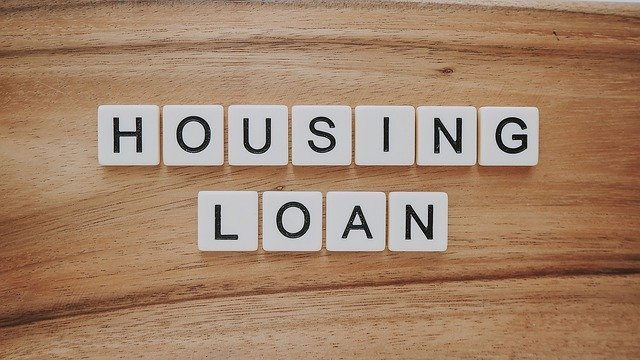
Home ownership is a primary goal of many share. To understand how mortgage lending works, you must educate yourself about it first. The following article shares helpful tips to guide you on the right track.
Pay down your current debt and avoid gaining new debt while going through the mortgage loan process. With low consumer debt, you will be better able to qualify on a good mortgage loan. A high level of debt can lead to your mortgage application being denied. Additionally, high debt may cause you to have a high mortgage rate.
You have to have a stable work history to get a home mortgage. A lot of lenders need at least 2 steady years of solid work history in order to approve any loan. Switching jobs too often can cause your application to get denied. You should never quit your job during the loan application process.
You will need to show a work history that goes back a while before you are considered for a mortgage. Many lenders need a history of steady work for two years for approving a loan. If you switch your job frequently, you may end up denied. Also, never quit a job while applying for a loan.
If you are underwater on your home and have made failed attempts to refinance, try again. The Home Affordable Refinance Program (HARP) has been revamped to let homeowners refinance when underwater. Speak with your mortgage lender to find out if HARP can help you out. If your lender says no, move on to one who will.
Communicate openly with your lender, even if your financial situation is not good. Even though it might seem that all is lost and you can’t afford to make the mortgage payments, lenders are sometimes willing to renegotiate the terms of a loan to help you get through troubled times. Stop putting it off, and call your lender to find a solution.
Your mortgage loan is at risk of rejection if the final stages due to sudden changes to your finances. Make sure your job is secure when you apply for a mortgage.
Get your documents in order ahead of applying for a new mortgage. You will realize that every lender requires much the same documents when you want a mortgage. They want to see W2s, bank statements, pay stubs as well as income tax returns. Having such items handy makes the process go smoothly.
Make sure your credit is good if you are planning to apply for a mortgage loan. Lenders tend to closely look at your entire credit history to make certain you are a good risk. If you’ve got bad credit, do whatever it takes to fix it so your loan is not denied.
Adjust your budget so as to not pay out more than a third of your monthly income to a mortgage note. Paying too much of your income on your mortgage can lead to problems should you run into financial difficulties. Keeping your payments manageable helps you keep your budget in order.
Make sure to see if a property has gone down in value before seeking a new loan. Even if your home is well-maintained, the bank might determine the value of your home in function of the real estate market, and that may hurt getting approved for the mortgage.
If you’re purchasing your first home, there are government programs available to help. You may find one that lowers closing costs, secure lower interest rates or accepts those with poorer credit histories.
Educate yourself about the home’s history of any prospective property.You have to understand just how your property taxes will increase over time.
If your mortgage is a 30-year one, think about making extra payments each month. Additional payments will be applied directly to the principal of your loan. If you make an extra payment regularly, you will pay off your loan faster and can substantially reduce the total amount of interest that you have to pay.

Search for the most advantageous interest rate you can find. The bank wants you to take the highest rate. Don’t let yourself be a victim to this type of this. Make sure you do some comparison shopping around so you know your options.
If dealing with your mortgage has become difficult, look for some help as soon as possible. If you get behind on making payments, or if you are really struggling to meet them on-time, look into mortgage counseling. Your local housing authority will have recommendations for credit counseling services that you can use. These counselors offer free advice to help you prevent a foreclosure. Call or visit HUD’s website for a location near you.
This should have all the fees and closing costs associated with the loan. Most companies share everything, there are lenders that may try to include hidden charges in your closing costs.
It is better to have low account balances on several revolving accounts, rather than one large balance on a single account. You want to make sure the balances are less than 50 percent of the credit available to you. If you’re able to, balances that are lower than 30 percent of the credit you have available work the best.
Do not allow a single denial to get you from trying again. One lender does not doom your prospects.Keep shopping around until you have exhausted all of your options. You might find a co-signer can help you get the mortgage.
Learn to identify a dishonest home mortgage lender, and how you can avoid them. While many are legitimate, many are scammers. Don’t work with lenders that are trying to get you into deals with smooth talk. Also, never sign if the interest rates offered are much higher than published rates. Avoid lenders that claim bad credit isn’t an issue. If the broker tells you to put something false on your application, leave the office immediately. You are being swindled.
If you are having difficulty paying a mortgage, seek help. Counseling might help if you are struggling. There are agencies nationwide that offer counseling under HUD all over the country. These counselors who have been approved by HUD offer free advice to help you prevent your home from being foreclosed. Call HUD or look on their office locations.
Know all that goes into the mortgage and what you are getting fee wise so that you know what’s going to happen. Ask the company to itemize each closing cost, including commissions and other charges. Some fees are open for negotiation with both sellers and lenders.
Once you have gotten a home mortgage, consider paying extra every month to go towards the principle. This helps you get the mortgage off faster. Paying only 100 dollars more per month on your loan can actually reduce the loan by 10 years.
Lower your number of open credit accounts prior to seeking a mortgage. Having too many, even if they have no balance, can make it seem as if you’re financially irresponsible. Closing all accounts other than a couple will help you get a great interest rate.
Mortgages aren’t easy to understand. You can be successful if you spend the necessary time to understand the many details of the financing process. Use all of the information from this article as the foundation for your mortgage knowledge and learn even more from books and Internet sources.
Avoid a home mortgage that has a variable interest rate. As the economy changes, the rates of your loan will change as well and it can cost you a lot more in interest fees. This will leave you in foreclosure and miserable.






